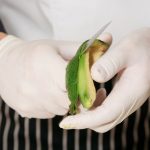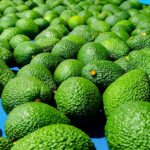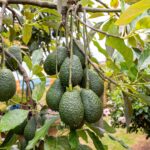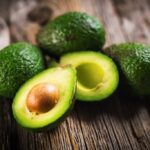Report alleges US avocado sellers continue sourcing from deforested Mexican land

U.S.-based NGO Climate Rights International published a study alleging that four United States avocado suppliers have continued to source avocados from Mexican orchards on illegally deforested land in 2023 and 2024.
The report, conducted by Climate Rights International in partnership with the Mexican non-governmental organization Guardián Forestal, holds U.S. avocado suppliers accountable after they were informed of the deforestation within their supply chains in a previous report published by the company in 2023, Unholy Guacamole: Deforestation, Water Capture, and Violence Behind Mexico’s Avocado Exports to the U.S. and Other Major Markets,
Daniel Wilkinson, Senior Policy Advisor at Climate Rights International spoke with FreshFruitPortal.com on the report's findings.
"The purpose of Climates Rights International is highlighting the human rights dimension of an environmental disaster," Wilkinson explains.
CRI's follow-up research began about a year and a half ago, after Unholy Guacamole. Unholy Guacamole, which took a little over a year of study and extensive field research across 18 municipalities in Jalisco and Michoacán, documents how the production of avocado for export to the United States was driving deforestation, and with it, contributing to water shortages.
Wilkinson explains that virtually all deforestation is illegal, and the water-hoarding by these organizations and the lack of authority's attention damage local communities. "And of course, local communities trying to defend their forests and water are getting threatened, attacked, or killed," he added.
Forest clearance becomes illegal deforestation if the organization doesn't have authorization to turn a piece of land into farmland, according to Wilkinson, in Michoacán the authorization has not been given in over 20 years.
In Unholy Guacamole, the organization found U.S.-export certified avocado orchards on deforested land in 41 of the 46 Michoacán municipalities, and 8 of the 10 Jalisco municipalities, approved exports to U.S. consumers as of 2023.
"People don't even bother to get the authorization, which makes it illegal and a crime that you can be prosecuted for in Jalisco," Wilkinson says. ¨There have been a few handful of authorizations but the vast majority of the land is being used illegally."
He adds that if the local community sees land being deforested they should be able to report it to the authorities, who would inspect the crime and should be able to serve them with administrative sanction, which blocks the use of the land for farming, and the person or business should be criminally prosecuted. But, these things generally don't happen, he says.
"A big part of the problem is also the failure of local authorities to enforce the law," Wilkinson explains. "We spoke to officials and prosecutors who want to do their job but they're operating in very difficult contexts due to violence and corruption."
But, denying orchards on deforested land access to the United States market would provide a relatively straightforward solution to the issue. This is why CRI's latest report is following up on the U.S. organization's commitments to sustainability.
"The United States avocado trade is heavily regulated, all they would have to do is the same thing we did: check the supply chains," he said. "If you go into a supermarket wherever you are, and see the avocados on display, and they have the boxes, underneath the cartons they came in, there's a sticker with a specific number specific to the orchard that sent them, because to export to the U.S. there needs to be a certification process."
The report provides a full list of the 60 examples identified by CRI of orchards that were deforested, apparently illegally, and that supplied the four companies between May 2023 and April 2024.
When asked how implementing the necessary steps to source from legal land would hurt the avocado industry, Wilkinson says that there's currently a discussion among Mexican environmentalists and officials in the avocado industry that factors in putting a restriction on export for orchards that have been deforested with the baseline year of 2020 or 2018.
"The idea would be to disincentivize deforestation," he adds. "If this was put in place, the vast majority of orchards are on lands that have been farmlands for years, and would continue to sell to the United States,"
The Policy Adviser says the ultimate goal is not to deprive anyone of their guacamole, but to remove the incentive that's driving the destruction of the environment and abuse against local citizens.
"The ultimate goal is to ensure that the industry, which is very important for the local economy, local jobs, and local communities, continues to thrive sustainably and that the Mexican laws are upheld and the rights of local residents protected."
FreshFruitPortal.com has contacted all four of the companies for comments on the latest report, but has not yet received any replies. CRI sent a letter to all U.S. suppliers mentioned in their Unholy Guacamole report and their responses are listed.














































